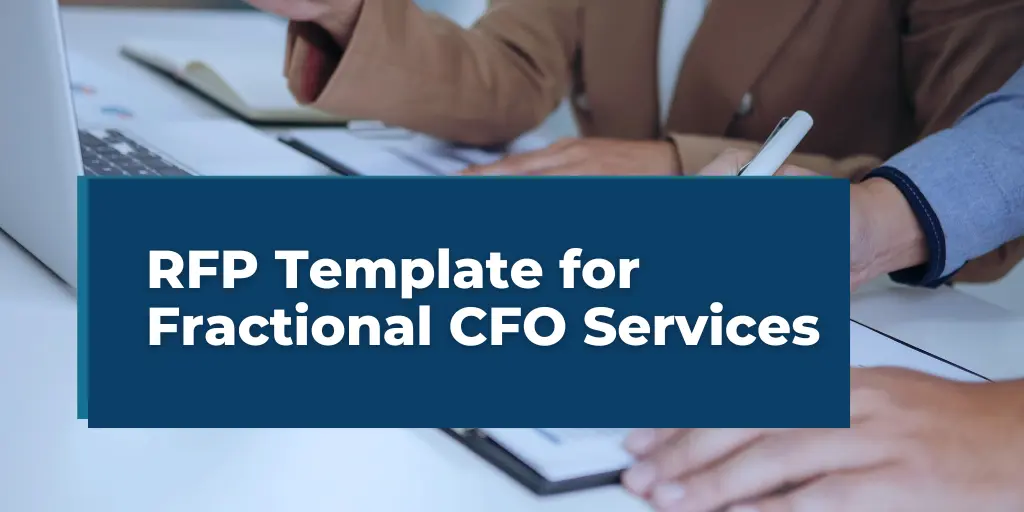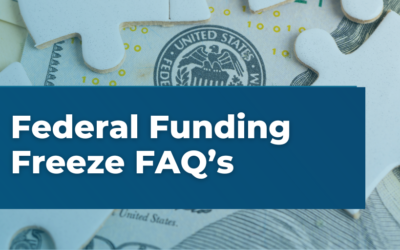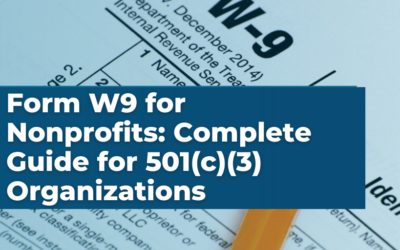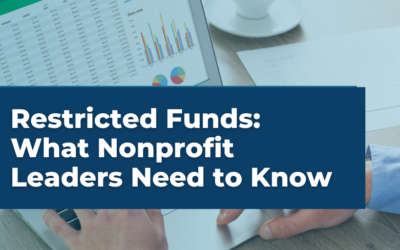Crafting an RFP for Fractional CFO Services
In today’s dynamic business landscape, the expertise of a Chief Financial Officer (CFO) is invaluable, yet the cost of a full-time CFO can be prohibitive for many organizations. This is where the Fractional CFO comes in, providing strategic financial guidance on a part-time or contractual basis. This cost-effective solution enables small to medium-sized businesses, startups, and nonprofits to benefit from high-level financial expertise without the financial burden of a full-time hire. The key to finding the right Fractional CFO lies in preparing a thorough Request for Proposal (RFP). A well-crafted RFP outlines your financial needs clearly, setting a foundation for a transparent and competitive selection process. It ensures that candidates understand your expectations and can tailor their services accordingly. A strategic RFP helps you choose a service provider that fits your goals, culture, and budget by guiding the evaluation process. This blog post will navigate you through creating an effective RFP for Fractional CFO services. We’ll cover everything from identifying your financial goals to selecting the ideal candidate, ensuring you secure a financial leader who will propel your organization toward its strategic aims.
Understanding Your Needs
The first step in hiring a Fractional CFO is to really understand your organization’s financial situation and goals. This important early stage helps you make an RFP that attracts the right candidates. Doing this ensures you find a CFO who can work well with your team and help achieve your plans.
1. Identifying Financial Goals
- Goal Setting: Begin by defining clear financial objectives. Knowing what you want to achieve, like better cash flow, help with fundraising, or growth, helps you find a CFO who can help make these goals happen.
2. Scope of Services
- Defining Needs: Detail the specific financial management and strategic planning services required. Differentiating between immediate needs and long-term goals helps in identifying the expertise necessary to address both current challenges and future opportunities.
3. Organizational Readiness
- Preparation for Integration: Assess your organization’s readiness to onboard a Fractional CFO. This involves evaluating current financial systems, processes, and team dynamics to ensure they can support the integration of this strategic role. Identifying any gaps or areas for improvement prepares your organization for a seamless transition.
Getting your needs clear means looking at how your organization handles money, what you plan for the future, and if you’re ready for changes. By looking closely at these things, you create a strong start for your RFP. This helps you find a Fractional CFO who can help your organization grow.
Request for ProposalsFractional CFO Services
1. Introduction to Your Organization
- Organization Name: [Your Organization’s Name]
- Mission Statement: [Your Mission Statement]
- Vision: [Your Vision for the Future]
- Core Values: [Your Organization’s Core Values]
- Brief History: [A Short History of Your Organization]
- Current Operations Summary: [Overview of Current Operations]
This section provides potential candidates with an understanding of the working context and allows them to gauge if their expertise aligns with your organization’s culture and goals.
2. Detailed Service Requirements
- Financial Services Needed: [List the Financial Services You Are Seeking]
- Expertise Required: [Specify the Expertise You Are Looking For]
- Key Tasks and Responsibilities:
- Financial Planning: [Specific Financial Planning Needs]
- Budget Management: [Details on Budget Management Requirements]
- Strategic Advice: [Types of Strategic Advice Needed]
Detailing the specific financial services and expertise you’re seeking helps candidates understand the scope of work and assess their ability to fulfill these roles effectively.
3. Budget and Resources
- RFP Process Timeline:
- Submission Deadline: [Deadline for Proposal Submissions]
- Review Period: [Timeframe for Proposal Review]
- Decision Date: [Date by Which a Decision Will Be Made]
- Project Timelines:
- [Month] 2024 – [Month] 2024
- [Etc.]
Providing a clear picture of your budget constraints and available resources sets realistic expectations and lays the groundwork for future compensation and resource allocation discussions.
4. Timeline and Milestones
- Process and Project Timelines: Outline the timeline for the RFP process, including submission deadlines, review periods, and decision-making dates. Mention specific projects or milestones with their respective timelines if applicable. This helps candidates plan their schedules and ensures that those who apply can commit to your timeline requirements.
Outlining the timeline for the RFP process and any specific projects or milestones ensures candidates can plan their schedules accordingly and commit to your timeline requirements. Incorporating these sections into your RFP will not only guide potential candidates through your specific needs and expectations but also establish a foundation for a transparent and competitive selection process. This structured approach is key to attracting the right talent capable of steering your organization toward its financial goals.
Evaluating Proposals
Once you’ve crafted and distributed your RFP for Fractional CFO services, the next crucial step is evaluating the proposals you receive. This stage involves a detailed review process to ensure that your chosen candidate is the best fit for your organization. Follow this format to effectively evaluate the proposals:
1. Criteria for Evaluation
- Evaluation Framework: Establish a set of criteria to assess each proposal. This framework might include the candidate’s experience, qualifications, understanding of your financial needs, proposed solutions, and cost estimates. A standardized evaluation framework ensures a fair and objective review process, helping to compare candidates on a like-for-like basis.
2. Interview Process
- Candidate Interaction: Set up meetings with the best candidates to talk more about their ideas and see how well they communicate and get along with others. Use these interviews to ask about anything unclear in their proposals, understand how they solve problems, and if they’d fit well with your team. Make a list of questions about their strategy, how they work, and their fit with your team’s culture to really get to know them.
3. Reference and Background Checks
- Due Diligence: Conduct thorough reference and background checks on your shortlisted candidates. This step is vital for verifying the information provided in their proposals and ensuring there are no red flags. Inquire about their performance, work ethic, and achievements from previous engagements to get an external perspective on their suitability for your organization.
By meticulously following these steps, you can thoroughly assess each proposal and select the Fractional CFO who not only meets your financial and operational requirements but also aligns with your organizational culture. This evaluation process is essential for making an informed decision that will benefit your organization in the long term.
Making the Selection
After carefully reviewing all proposals and interviewing candidates, the next big step is choosing the right Fractional CFO. This part is all about deciding who matches your organization’s needs and values the best, based on everything you’ve learned. Here’s how to navigate this crucial stage:
1. Decision-Making Process
- Consensus Building: Involve key stakeholders in the decision-making process to ensure the selected candidate has broad support within your organization. Utilize the evaluation criteria established earlier to compare candidates objectively. Discuss each candidate’s strengths and weaknesses, and how well they align with the organization’s financial goals and culture. A structured discussion based on predefined criteria helps in reaching a consensus.
2. Negotiating Terms
- Finalizing the Agreement: Once a candidate is selected, the next step is to negotiate the terms of engagement. This includes discussing the scope of work, compensation, duration of the contract, and any specific expectations from both parties. It’s crucial to communicate openly and clearly during this phase to lay the foundation for a strong working relationship. Ensure that the terms of the contract are mutually beneficial and aligned with the organization’s objectives and budget.
3. Announcement
- Introducing the Fractional CFO: After the contract is signed, formally announce the appointment of your new Fractional CFO to your organization. This communication should include an introduction of the Fractional CFO to your team, highlighting their background, expertise, and the role they will play in achieving the organization’s financial goals. A proper introduction helps in setting the stage for a successful integration into your organization.
Choosing the right Fractional CFO is a big decision that really affects your organization’s money and growth. By making this decision and talking terms carefully, you can make sure everything goes smoothly and start a good working relationship that helps your organization reach its money goals.
Onboarding Your Fractional CFO
Successfully integrating a Fractional CFO into your organization is crucial for maximizing the benefits of their expertise and achieving your financial goals. The onboarding process is not just about administrative tasks; it’s about setting the foundation for a productive working relationship. Here’s how to ensure a smooth transition:
1. Integration Plan
- Structured Onboarding: Develop a structured onboarding plan that outlines key activities, meetings, and resources available to the Fractional CFO. This plan should facilitate their understanding of your organization’s operations, culture, and team dynamics. Include introductions to key team members, overviews of critical systems and processes, and access to necessary financial documents and reports. A well-thought-out integration plan accelerates the CFO’s ability to contribute effectively.
2. Setting Expectations
- Clear Role Definition: Clearly define the role, responsibilities, and expectations for the Fractional CFO. Discuss short-term and long-term objectives, key performance indicators (KPIs), and how their success will be measured. Setting clear expectations from the start ensures alignment and focuses efforts on priority areas.
3. Regular Communication
- Fostering Collaboration: Establish regular check-ins and communication channels between the Fractional CFO and other team members. These interactions are essential for monitoring progress, addressing challenges, and promoting collaboration across departments. Encouraging open communication fosters a team environment where the Fractional CFO’s expertise can be fully leveraged.
4. Feedback and Adjustment
- Keep Getting Better: Set up a way to regularly check how well the CFO is doing and if their job or goals need to change. This helps both the organization and the CFO stay flexible and keep focusing on the main goals.
Onboarding a Fractional CFO is a strategic process that requires careful planning and execution. By following these steps, you can ensure that your new CFO is well-equipped to make a meaningful impact, driving your organization towards financial health and strategic growth.
Conclusion
Selecting and onboarding the right Fractional CFO is a pivotal journey that significantly enhances your organization’s financial strategy and functional success. From carefully making your RFP to getting your new CFO settled in, each step helps you meet your financial goals and grow. As you start this important journey, remember it’s not just about choosing a CFO but about building a lasting, effective partnership. This partnership is essential for those ready to navigate the intricate financial landscapes with confidence and strategic insight. Embracing the decision to hire a Fractional CFO marks a strategic investment in your organization’s future. With the right plan, you can create a successful partnership that helps your organization reach its money and planning goals. For further guidance on identifying and integrating the ideal Fractional CFO, don’t hesitate to contact Velu. Our team is ready to assist, ensuring a tailored fit to your unique objectives and challenges.





